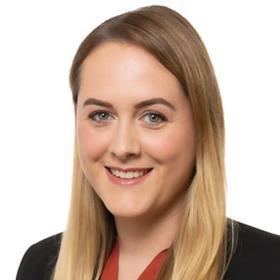The master of the rolls Sir Geoffrey Vos, in his recent speech on the future of disputes, predicted that most personal injury and medical negligence disputes ‘will be resolved very quickly’ by artificial intelligence.

He considers that the future of such disputes could involve automated systems and perhaps no legal costs at all (certainly in respect of lower value claims). In his speech he stated that factual disputes as we know them could be a thing of the past.
His view is that claimants in lower value claims want a swift costs free resolution, not caring if the outcome is robust and dependable. He does acknowledge that in larger or more complex disputes claimants will be more willing to invest time and money for a correct and just solution.
The purpose of this article is to consider Vos’ comments from a personal injury and clinical negligence perspective. Reference will be made to the current position, his predictions for the immediate future and likely later developments whilst considering the safeguarding that could be put in place to protect claimants at all levels of the claims process.
The current position and the immediate future
As a result of the Covid-19 pandemic, electronic systems are more heavily relied upon. Lawyers and judges have welcomed the practicality of working on screen and have proven we can adapt. This is likely to lead to the acceleration of the end of paper in court.
Vos considers that by the mid 2020’s there will be a fully functioning digital justice system with a focus on resolution and identifying issues that truly divide the parties.
In his speech, he outlines a system whereby claimants have access to a website and application that allows them to identify how to make a claim and signposts them to pre-action portals to identify and seek to resolve their claim. If resolution isn’t possible, data will be transmitted to a court based online justice programme with continuous mediated interventions. This sounds promising, as long as the system can accurately identify when human intervention is required.
Future developments
Looking forward to the 2040’s Vos believes that we will have reached a position whereby bulk claims are resolved quickly online with no costs and factual disputes as we know them will be a thing of the past in most claims.
Reliance on automated systems and developments in artificial intelligence (AI) with much of our lives being recorded on-chain could, as far as Vos is concerned, revolutionise the justice system. For example, cars are likely to be recording the speed at the moment of impact or who programmed the system piloting the vehicle, which would make liability disagreements obsolete. In the medical negligence field, we are already starting to see the emergence of robotic assisted technology such as ‘the Da Vinci surgical system’.
If we can rely on AI to resolve liability then presumably this could also extend to quantum involving an automated assessment of appropriate compensation awards. This would inevitably involve a system that bases settlements on previously settled cases.
If the anticipated changes are realised in the future then there could be improvements in efficiency, mundane tasks could be a thing of the past and it would enable lawyers to focus their attention in a more streamlined fashion. This would inevitably boost productivity and free up capacity.
However, there are ethical questions to be asked. How will challenges to information derived from AI systems be checked and challenged if necessary? Who is going to check that the correct calculations have been made by the automated system? Whilst Vos states that claimants will be able to question an AI driven decision before a human judge, it is arguable that many lay claimants will struggle to make these assessments alone. In these circumstances there will surely be a place for lawyers to oversee the process providing a check and balance to the automated system.
We need to consider how individual circumstances can be taken into account especially in relation to quantum assessment. Will the system that Vos anticipates be able to provide an objective, fair and precise outcome in respect of both liability and quantum? Can it be flexible when evaluating individual injury claims? We must make sure any past data relied upon leads to a just and fair outcome for claimants.
Conclusion
The justice landscape is changing rapidly and it could be argued that the Covid-19 pandemic has accelerated this inevitable process.
If Vos is correct and we do go down the road of a truly integrated digital system then access to justice for claimants could be revolutionised. This is especially true when considering the potential advancement of AI technologies and in particular how this could streamline liability disputes in personal injury and clinical negligence cases. In principle there could be many benefits for claimants, providing appropriate safeguarding is put in place.
As Vos said himself, there is an intrinsic human purpose underlying the justice system. That is why it is so important that claimants are able to challenge AI driven data and decisions. It must follow then that there is a place for lawyers in assisting with this assessment and facilitating claimants to appeal decisions based on erroneous data.
Whilst we are likely to see many changes to access to justice over the next 20 years, it is unlikely that there will be a replacement for human expertise in complex litigation.
Charlotte Dowson is a senior solicitor in the complex Injury team at Bolt Burdon Kemp
This article is now closed for comment.
































9 Readers' comments